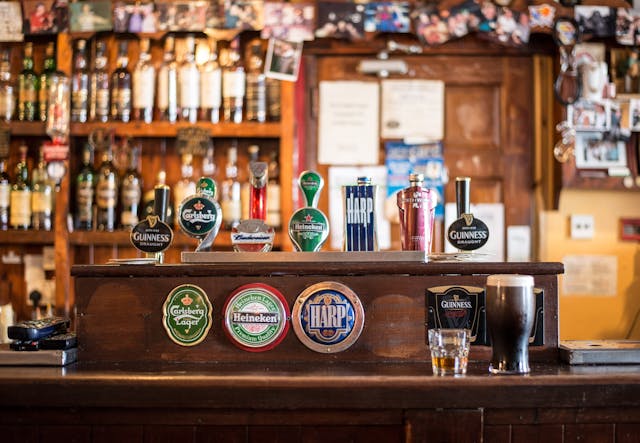
The hospitality industry is known for its dynamic environment, high standards of service, and the ability to adapt to the needs of a diverse clientele. Whether you’ve worked in a hotel, restaurant, pub, or any other hospitality setting, the skills you acquire are invaluable and highly transferable to other industries. Whether you’re looking for Lancashire live-in pub manager jobs or you’re ready to move into a new sector, we’ve got you covered.
1. Exceptional Customer Service
Hospitality Context:
In the hospitality industry, providing top-notch customer service is paramount. Whether you’re dealing with guests at a hotel reception, diners in a restaurant, or patrons in a bar, your ability to make people feel welcome and satisfied is critical.
Transferable Industries:
Retail:
Providing excellent customer service is crucial in retail, where customer satisfaction and repeat business are key.
Healthcare:
Empathy and patient care are central to healthcare roles, where making patients feel comfortable and heard is essential.
Sales:
Building relationships with clients and understanding their needs directly impacts sales performance and client retention.
2. Effective Communication
Hospitality Context:
Clear, concise communication with guests, team members, and management ensures smooth operations and a positive experience for everyone involved.
Transferable Industries:
Marketing and Public Relations:
Crafting clear messages, understanding audience needs, and delivering compelling communication are critical.
Education:
Explaining concepts clearly and engaging with students or trainees requires strong communication skills.
Corporate:
Facilitating meetings, presenting ideas, and collaborating with colleagues depend heavily on effective communication.
3. Time Management and Multitasking
Hospitality Context:
Handling multiple tasks efficiently, such as managing reservations, serving tables, and ensuring quick turnaround during busy periods, is a hallmark of hospitality work.
Transferable Industries:
Project Management:
Coordinating various aspects of a project, meeting deadlines, and managing resources efficiently.
Event Planning:
Organizing events requires balancing multiple tasks and ensuring everything runs smoothly.
Administration:
Managing office tasks, schedules, and deadlines benefits greatly from strong time management skills.
4. Teamwork and Collaboration
Hospitality Context:
Successful hospitality operations rely on seamless teamwork, with each member understanding their role and how it contributes to the overall guest experience.
Transferable Industries:
Corporate Environments:
Working effectively within teams to achieve common goals and deliver projects.
Creative Industries:
Collaborating on projects like film production, advertising campaigns, or software development.
Nonprofits:
Working together to organize events, manage volunteers, and achieve organizational objectives.
5. Problem-Solving and Adaptability
Hospitality Context:
Dealing with unexpected situations, such as last-minute bookings, customer complaints, or supply shortages, requires quick thinking and adaptability.
Transferable Industries:
Technology:
Troubleshooting issues, adapting to new technologies, and finding innovative solutions.
Consulting:
Analyzing problems, devising strategies, and implementing solutions for clients.
Logistics and Supply Chain:
Responding to disruptions and ensuring smooth operations despite challenges.
6. Sales and Upselling
Hospitality Context:
Suggesting menu items, promoting special offers, and enhancing the guest experience through upselling are common in hospitality.
Transferable Industries:
Real Estate:
Selling properties, understanding client needs, and promoting additional services.
Automotive Sales:
Recommending additional features or services to enhance customer satisfaction.
Financial Services:
Advising clients on products and services that best meet their needs.
7. Attention to Detail
Hospitality Context:
Ensuring that every aspect of a guest’s experience is perfect, from the cleanliness of a room to the presentation of a dish, showcases meticulous attention to detail.
Transferable Industries:
Quality Assurance:
Ensuring products meet certain standards and identifying areas for improvement.
Legal:
Drafting documents, reviewing contracts, and ensuring accuracy in legal matters.
Engineering:
Designing and maintaining systems or products with precision and accuracy.
Conclusion
The skills developed in the hospitality industry are not only valuable but also highly transferable to a wide range of other industries. From exceptional customer service and effective communication to problem-solving and adaptability, these skills can open doors to various career opportunities. Recognizing and leveraging these transferable skills can significantly enhance your employability and career progression, regardless of the industry you choose to pursue.




